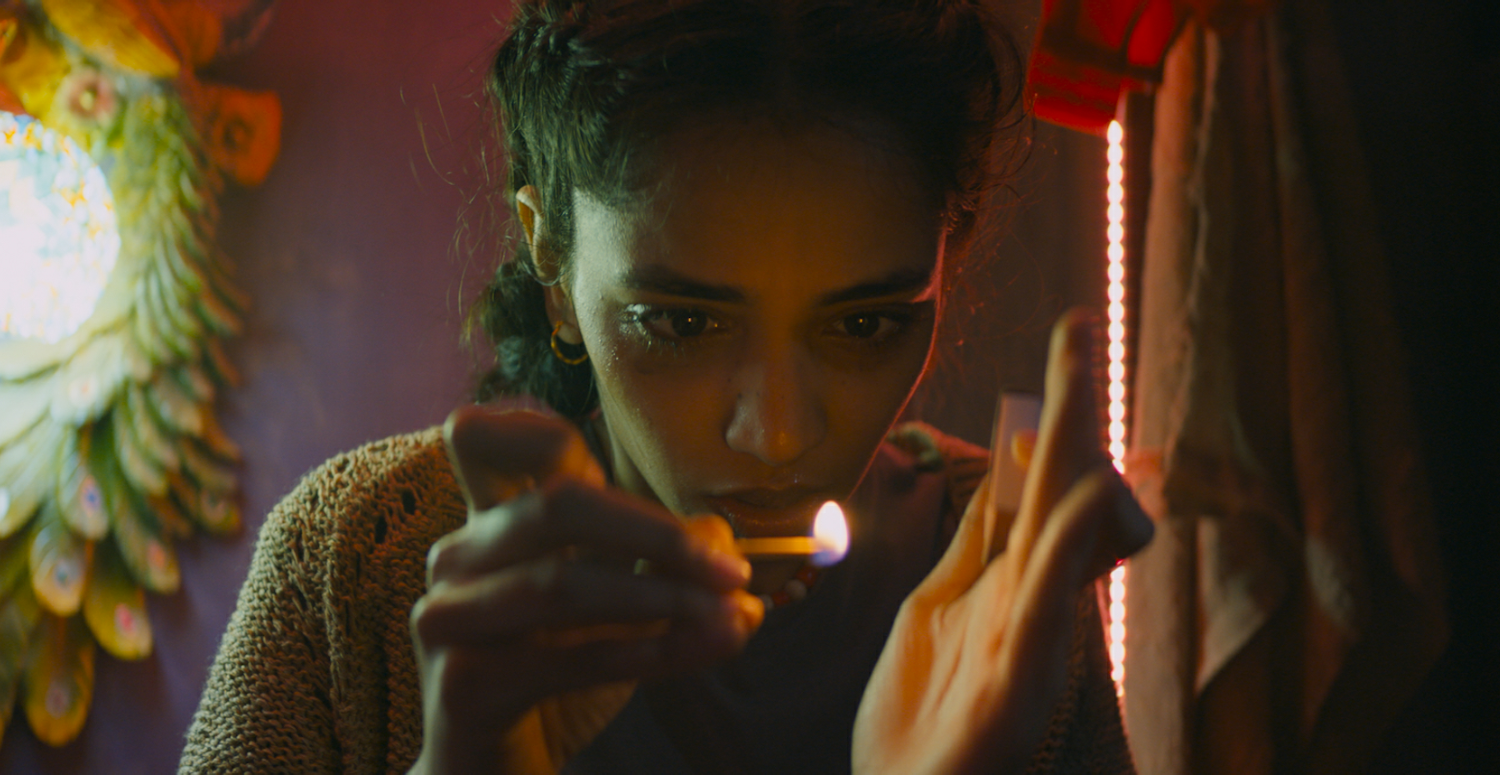The Shameless
Meilleure Actrice (Un Certain Regard) – Cannes
2024/2025

FR EN
Le cinéma indépendant indien continue de nous offrir des portraits de femmes qui tentent tant bien que mal de se libérer du poids des traditions après « Santosh » et « All we imagine as light » l’an dernier. « The Shameless » nous plonge ici dans un monde où la femme s’apparente à un objet négociable à travers l’histoire de deux personnages d’univers bien différents : une prostituée de GB Road (un quartier chaud de Delhi) en fuite et une adolescente de Chatrapur (au sud du pays) dont la virginité sera bientôt vendue. Cette dernière est aussi docile et timide que la première est coriace et rageuse. Le réalisateur bulgare Konstantin Bojanov explore ainsi les liens tendres et conflictuels de ces deux femmes qui vont peu à peu s’émanciper au contact de l’autre. Au sein d’une culture hindie et d’une communauté Devadasi marginalisée mais où les prêtresses conservent un semblant de rang social, il mélange des problématique modernes et des coutumes séculaires autour de plusieurs thématiques : de l’amour à la sexualité, en passant par le libre-arbitre et l’expression artistique, et dans la limite des castes et des croyances religieuses de l’Inde actuelle.
Mais si la multiplicité des sujets abordés enrichit certes le fond et l’environnement du récit, elle rend sa narration un peu trop éparpillée. Si le cœur du film réside bien dans la relation entre son duo de personnages principaux, la trame se perd parfois dans certaines scènes en partant sur d’autres sujets – qui ne sont pas inintéressants – mais bien déconnectés. La petite dimension prophétique (avec ses visions potentiellement prémonitoires) est ainsi intéressante mais aurait clairement pu aller plus loin plutôt que de simplement saupoudrer le récit sans vraie conséquence. De même, l’expression artistique est un sujet complètement abandonné dès la fin du premier arc. Et dès le départ, en mélangeant les introductions de personnages, la mise en relation des éléments de l’intrigue aurait peut-être pu être construite de manière plus claire et cohérente sans forcément devoir alourdir le propos avec des dialogues soulignés.
L’ensemble navigue ainsi entre le film d’émancipation et le thriller socialo-policier sans poser suffisamment l’encre d’une narration qui par conséquent peine à nous captiver pleinement. Mais « The Shameless » reste un beau film (tourné au Népal) porté par les très bonnes prestations des actrices Anasuya Sengupta et Omara qui réussit un très bon dernier tiers avec une belle métaphore de la société indienne sur la fin.
Raphaël Sallenave
After last year’s “Santosh” and “All we imagine as light”, Indian independent cinema continues to offer us portraits of women striving to free themselves from the shackles of tradition. “The Shameless” brings us into a world where women are nothing more than bargaining chips, through the story of two characters from very different worlds: a runaway prostitute from GB Road (a red-light district of Delhi) and a teenage girl from Chatrapur (in the south of the country) whose virginity is soon to be sold. The latter is as docile and timid as the former is tough and raging. Bulgarian director Konstantin Bojanov explores the tender and conflicting bonds between these two women, who gradually emancipate themselves through their relationship with each other. Set in a Hindu culture and a marginalized Devadasi community where priestesses retain a semblance of social standing, he blends modern issues and age-old customs around a number of themes: from love to sexuality, from free will to artistic expression, all within the confines of the castes and religious beliefs of present-day India.
But while the wide range of subjects certainly enriches the story’s background and setting, it also makes the narrative a little too scattered. While the heart of the film lies in the relationship between its duo of main characters, the plot sometimes loses its focus in certain scenes, moving on to other issues – which are not uninteresting – but quite unrelated. The small prophetic dimension (with its potentially premonitory visions) is thus interesting, but clearly could have gone further rather than simply sprinkling the narrative with no real consequences. Similarly, artistic expression is a subject completely dropped at the end of the first arc. And right from the start, by mixing character introductions, the connection between plot elements could perhaps have been set up in a clearer, more coherent way, without necessarily having to weigh the story down with over-emphasized dialogue.
The film thus fluctuates between emancipation film and social-police thriller, without sufficiently anchoring the narrative, which consequently struggles to fully captivate us. But “The Shameless” remains a beautiful film (shot in Nepal), with excellent performances from actresses Anasuya Sengupta and Omara, and a very good final third with a lovely metaphor for Indian society at the end.
Raphaël Sallenave

